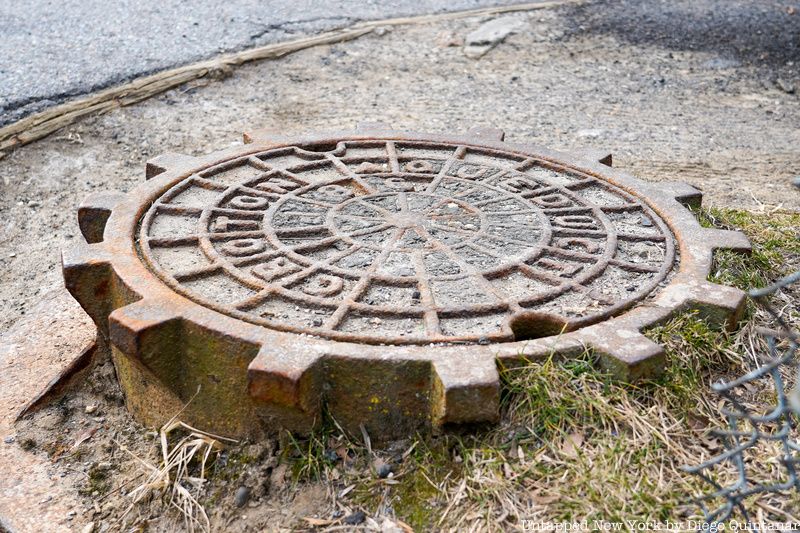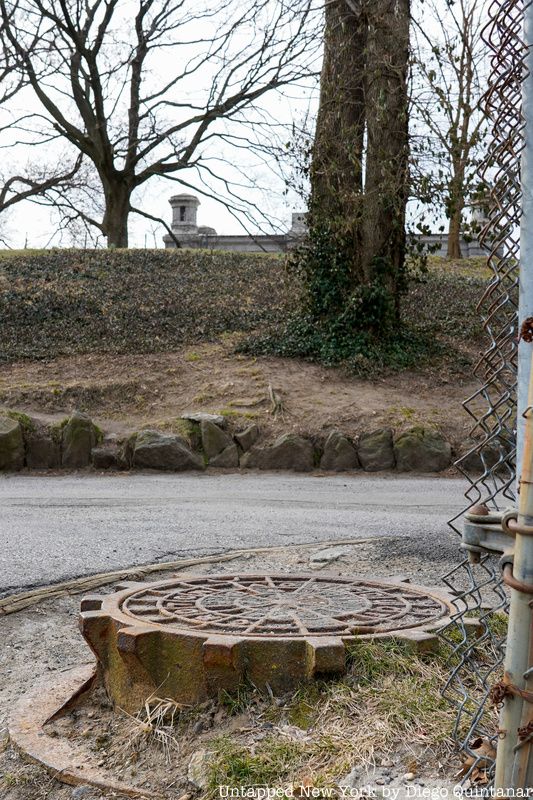♀️ The Trailblazing Women of Wall Street
Women have long shaped Wall Street—even when history tried to write them out.


Tracking down historic New York City manhole covers is a favorite pastime of the Untapped New York team and we are on a constant quest to find the oldest one. For a long time, that distinction was held by an 1866 Croton Aqueduct manhole cover on Jersey Street next to the Puck Building in Soho. That is until we found an even older manhole cover on a sidewalk across from the Port Authority Bus Terminal on 40th Street and 8th Avenue, dating to 1862 (and another one from the same year in Central Park). And now, reader Don Burmeister, who runs the site A Field Guide to New York City Manhole Covers, has tipped us off to an even older one! Dating to 1861 and located in Central Park this manhole cover currently holds the title as New York City’s oldest in our book.

Burmeister told Untapped New York that this cover can easily be found in Central Park on the north side of the Jacqueline Kennedy Onassis Reservoir, right next to the Ladies Room of the Central Park Tennis Center. This 1861 manhole cover predates another found in Central Park from 1862 which was brought to our attention by Insider member Stanley Zucker.
In A Field Guide to New York City Manhole Covers, Burmeister surmises that this lid “probably covers a settling well on a line of drainage pipe that carries overflow from the reservoir to the Pool and the Loch at 103rd Street.” The Croton Aqueduct system was a life-changing innovation for New York City. To help stem the spread of epidemics like cholera, the 32-mile gateway was built to provide city-dwellers with clean and safe water from Westchester. In addition to the manhole covers, many other remnants of the aqueduct can still be found today, from the water tower at Highbridge Park, to stone remnants inside the New York Public Library where a large reservoir once stood, and pieces of the stone wall of another reservoir which once occupied the Great Lawn in Central Park.

The shape and design of this manhole cover is another interesting aspect to note. Burmeister points out that there are eighteen spokes on the face of the lid and fourteen cogs ringing the outside frame. These visual elements are seen in later versions of Croton Aqueduct manhole covers, with slight variations. The designs of manhole covers vary widely and are fun to notice while walking the streets of New York City. Keep an eye out, since you never know what you may find!
Are you like us and can’t get enough of manhole covers? We have an entire episode of The Untapped New York Podcast dedicated to their history and design! Check it out below!
Net, check out Why are Manhole Covers Round?
Subscribe to our newsletter